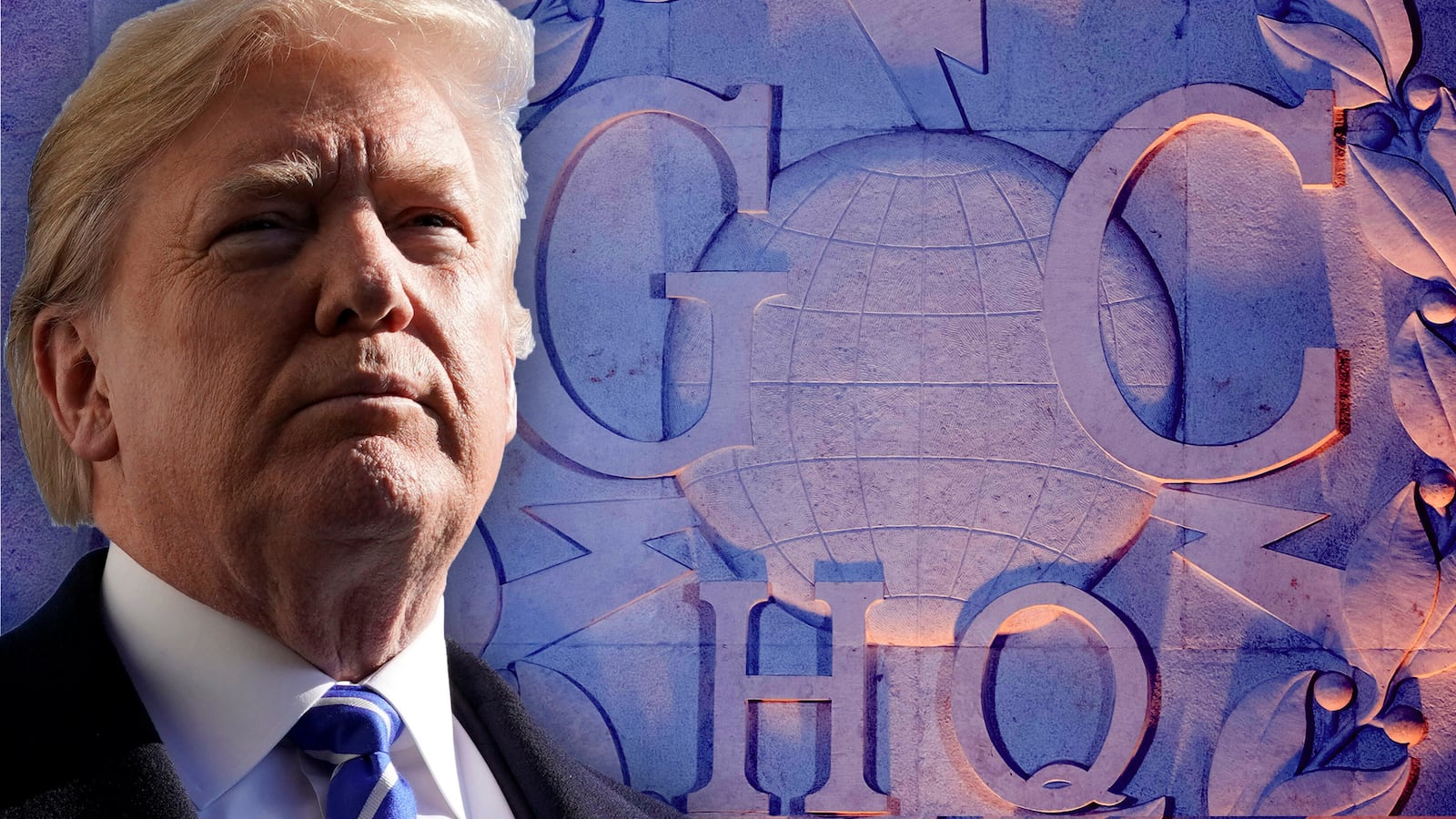British spies expressed concern in late 2016 that some of now-President Trump’s extreme campaign rhetoric could develop into contentious policy or legislation, according to a newly published report from a U.K. government body that oversees the country’s intelligence agencies.
Although the comments were made before Trump was elected, they still show how one of the U.S.’s most important allies was paying close attention to the possibility of the U.S. falling back into the practice of torture, as well as Trump’s position on Russia in particular.
“Certain views that the president has expressed—particularly prior to his election—have the potential, if they were to become official policy, to pose difficulties for the UK-USA intelligence relationship,” the report from the Intelligence and Security Committee (ISC) of Parliament, published Wednesday, reads. “These include, inter alia, the potential for a change in the U.S. relationship with Russia and Iran, and a change in policy on the use of torture and cruel, inhuman, or degrading treatment,” it continues.
The ISC oversees the U.K. government’s intelligence and security activities, including those of the Secret Intelligence Service (SIS) and Government Communications Headquarters (GCHQ), essentially the equivalent of America’s National Security Agency. In that role, the ISC is able to obtain written and oral evidence from the various intel agencies, and, though some sections have many redactions, include direct responses from the agencies in its report.
“If something happened which caused us fundamentally to revisit our presumption of legality [of the U.S. agencies’ actions], which we have got now, hard won after many years after all the problems we have discussed [on detainee treatment and rendition], then that would be really difficult,” SIS, otherwise known as MI6 and which focuses on overseas intelligence, told the ISC, according to the report.
During his campaign, Trump said “Don’t tell me it doesn’t work—torture works.”
MI5, the U.K.’s domestic security agency, told the ISC “Whether this signals a likelihood to return to forms of abuse of detainees, I think we spent enough time in this room talking about that for you to know I would be very highly alert to any sort of changes like that.”
“So if any of that changes on the U.S. side, there will be a consequence in the relationship but, you know, we will not collude in any sort of change in that sort of behaviour,” MI5 added.
Ultimately, MI5, SIS, and GCHQ, judging by their responses to the ISC, did not expect Trump’s rhetoric to form actual policy. All of their oral evidence was given in November and December 2016, though: In January, a draft memo published by The New York Times and Washington Post showed the Trump administration was exploring how to resume use of CIA “black sites.”
In March, the Financial Times reported that current and former U.K. intelligence officials worried the U.S. president has the power to weaken intelligence ties. Sean Spicer, the former White House press secretary, echoed an unsubstantiated claim that GCHQ snooped on Donald Trump on President Obama’s behalf. GCHQ called the accusations “utterly ridiculous,” the Financial Times added.
Regardless, the ISC writes in its report that “the U.K. government must continue to keep a close eye on any changes in U.S. policy and take swift action if there are signs that these might run counter to British laws and values.”






